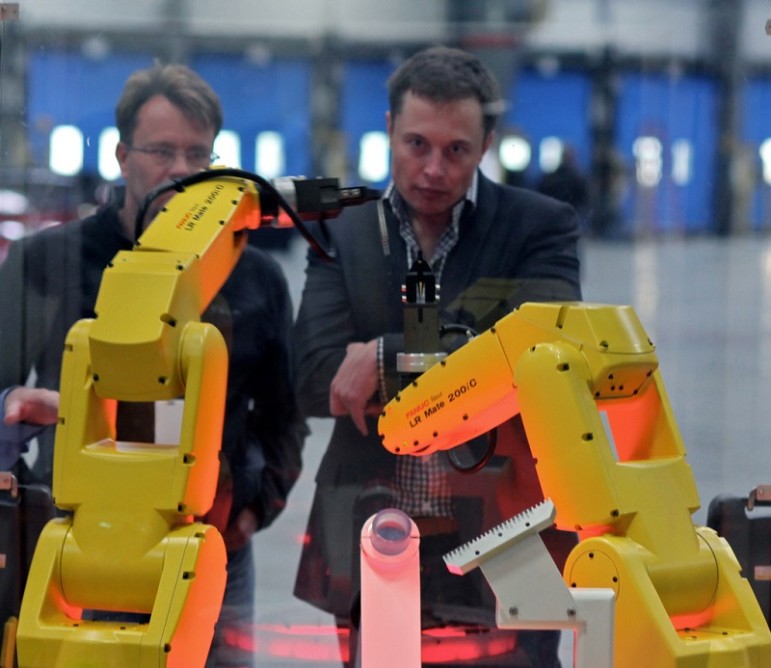
December 11, 2015; Popular Science
Saying that there needs to be a nonprofit in the mix of those researching artificial intelligence, Elon Musk and a number of other tech notables launched OpenAI with an announcement via blog post on Friday. Musk, of course, has expressed previously that he believes that artificial intelligence is the factor that arguably poses the “biggest existential threat to mankind.” As the blog post reads:
AI systems today have impressive but narrow capabilities. It seems that we’ll keep whittling away at their constraints, and in the extreme case they will reach human performance on virtually every intellectual task. It’s hard to fathom how much human-level AI could benefit society, and it’s equally hard to imagine how much it could damage society if built or used incorrectly.
[…]
Because of AI’s surprising history, it’s hard to predict when human-level AI might come within reach. When it does, it’ll be important to have a leading research institution which can prioritize a good outcome for all over its own self-interest.
We’re hoping to grow OpenAI into such an institution. As a non-profit, our aim is to build value for everyone rather than shareholders. Researchers will be strongly encouraged to publish their work, whether as papers, blog posts, or code, and our patents (if any) will be shared with the world. We’ll freely collaborate with others across many institutions and expect to work with companies to research and deploy new technologies.
Sign up for our free newsletters
Subscribe to NPQ's newsletters to have our top stories delivered directly to your inbox.
By signing up, you agree to our privacy policy and terms of use, and to receive messages from NPQ and our partners.
The choice to make the entity a nonprofit reflects an intention to keep the institution at least on its face clear of a profit motive and designed for public benefit.
Sam Altman will co-chair the new well-heeled entity. Altman is a main backer for the user-driven website Reddit, and he believes that AI can help in “individual empowerment and making humans better.” The whole endeavor is aimed at driving forward research in the field of “deep learning,” which WIRED Magazine describes as follows:
[Deep learning] has proven extremely adept in recent years at identifying images, recognizing spoken words, translating one language to another, and, to a certain extent, understanding the natural way that we humans talk. Sutskever is a protégé of Geoff Hinton, one of the founding fathers of the deep learning movement, who now works for Google.
Deep learning relies on what are called neural networks, vast networks of machines that approximate the networks of neurons in the human brain. Feed enough photos of a cat into a neural net, and it can learn to identify a cat. Feed enough dialogue into a neural net, and it can learn to carry on a pretty good, if sometimes dodgy, conversation. The hope is that top researchers can take this much further. Some believe the method can even be used to mimic human common sense.
Apparently, the nonprofit aims to make its work open source, which may have been the reason why Google and Facebook just made their own work in the area open source.
Also involved in the effort are LinkedIn co-founder Reid Hoffman, PayPal co-founder Peter Thiel, and Ilya Sutskever, a very young former research scientist with the Google Brain Research Team who specializes in machine learning. Here is a little interview with him about the general theory of his work.—Ruth McCambridge












